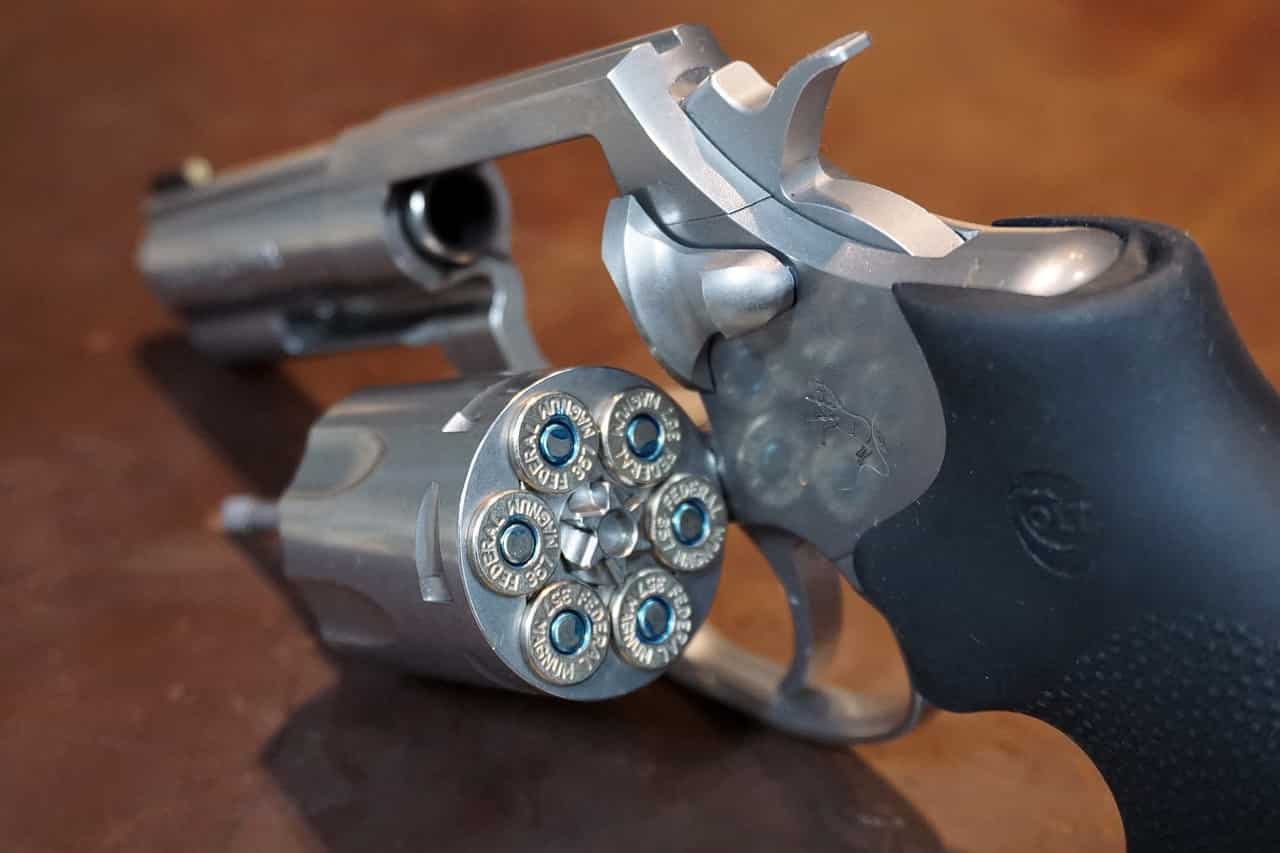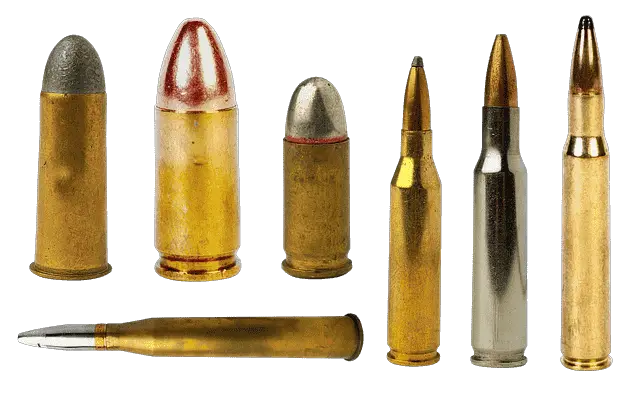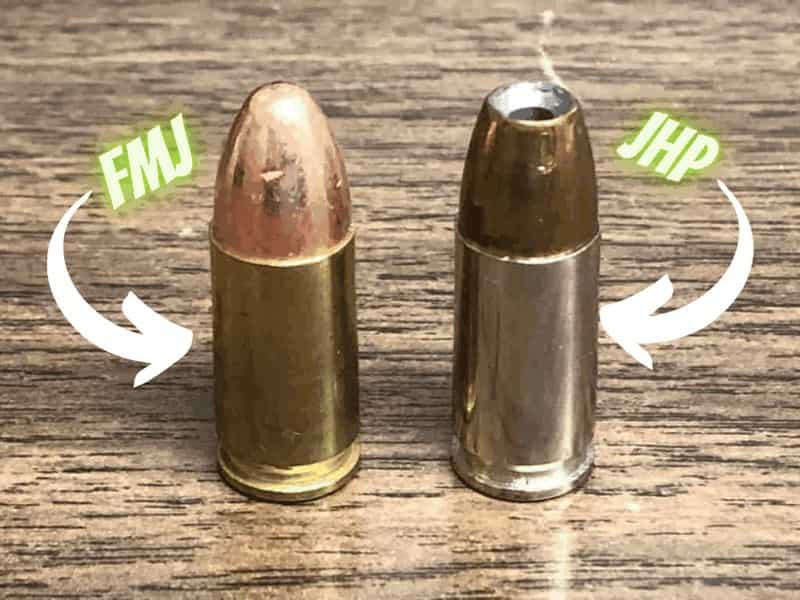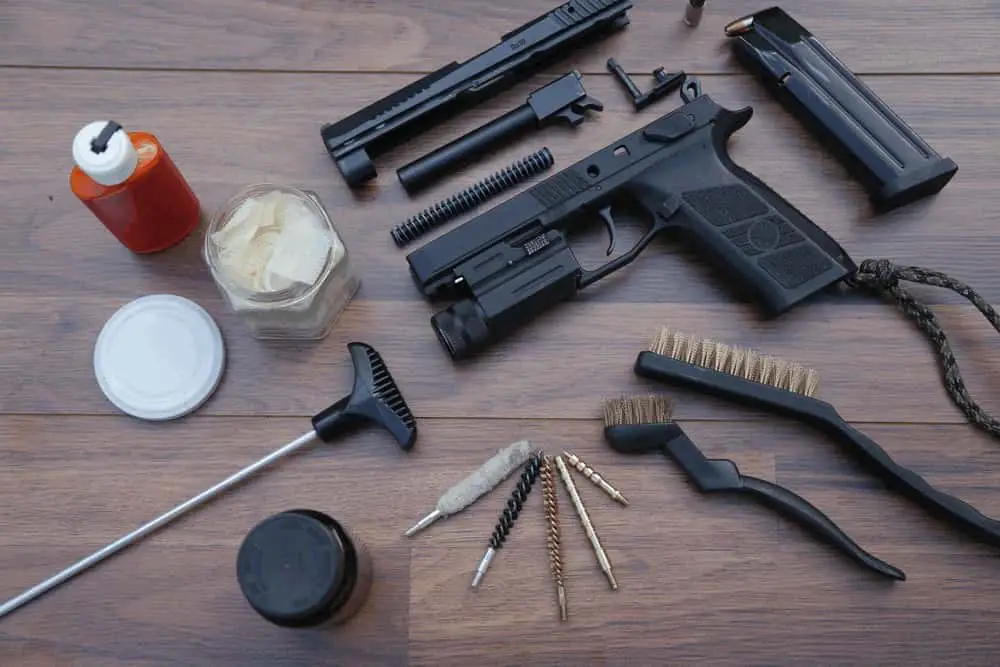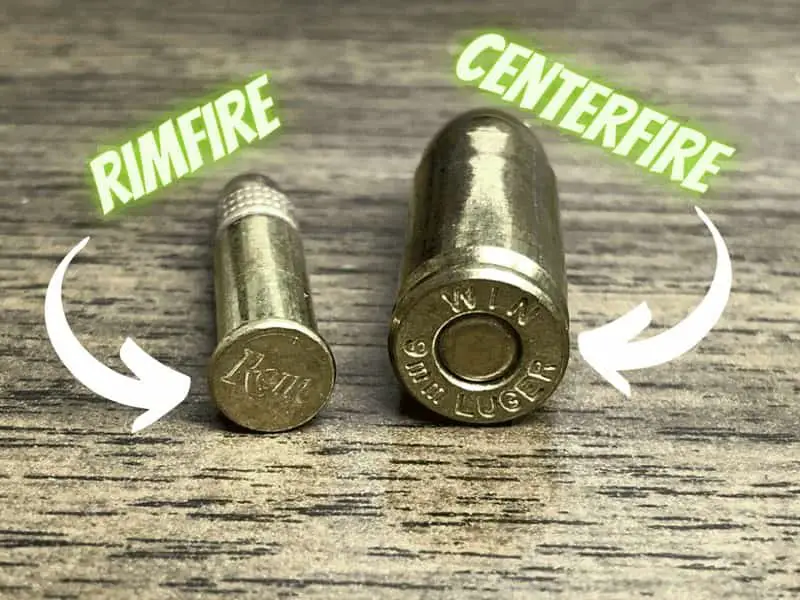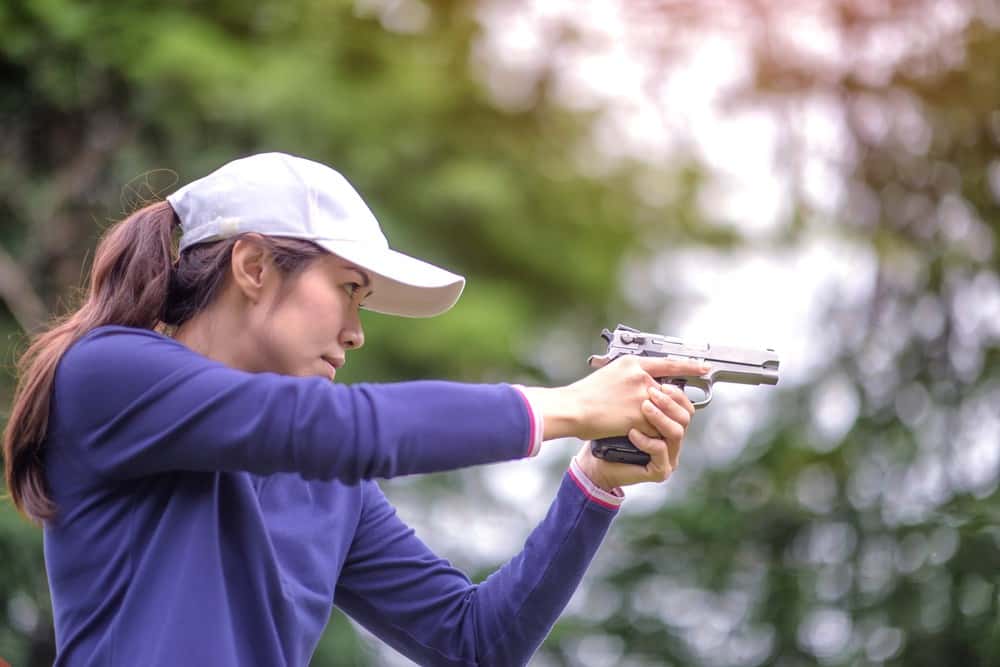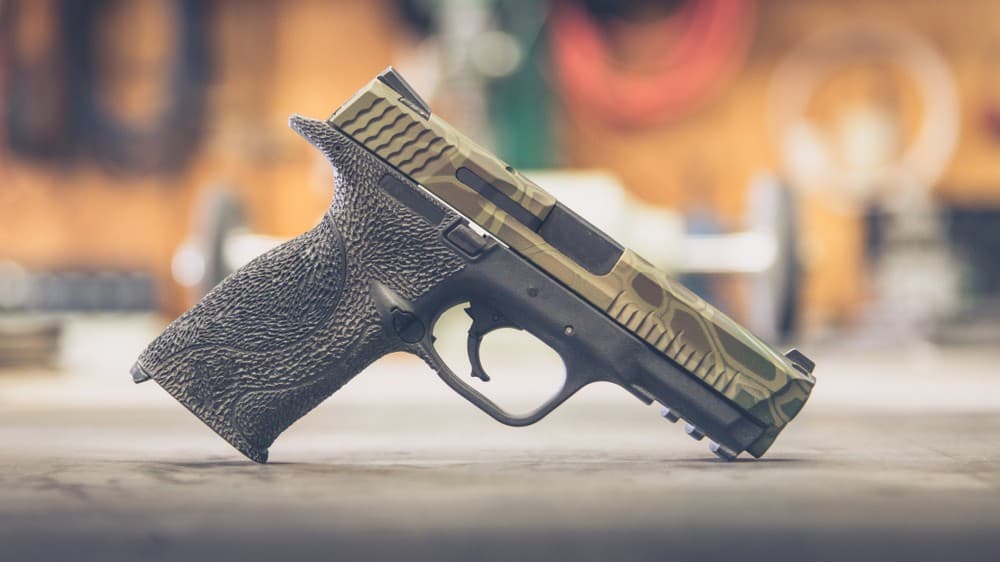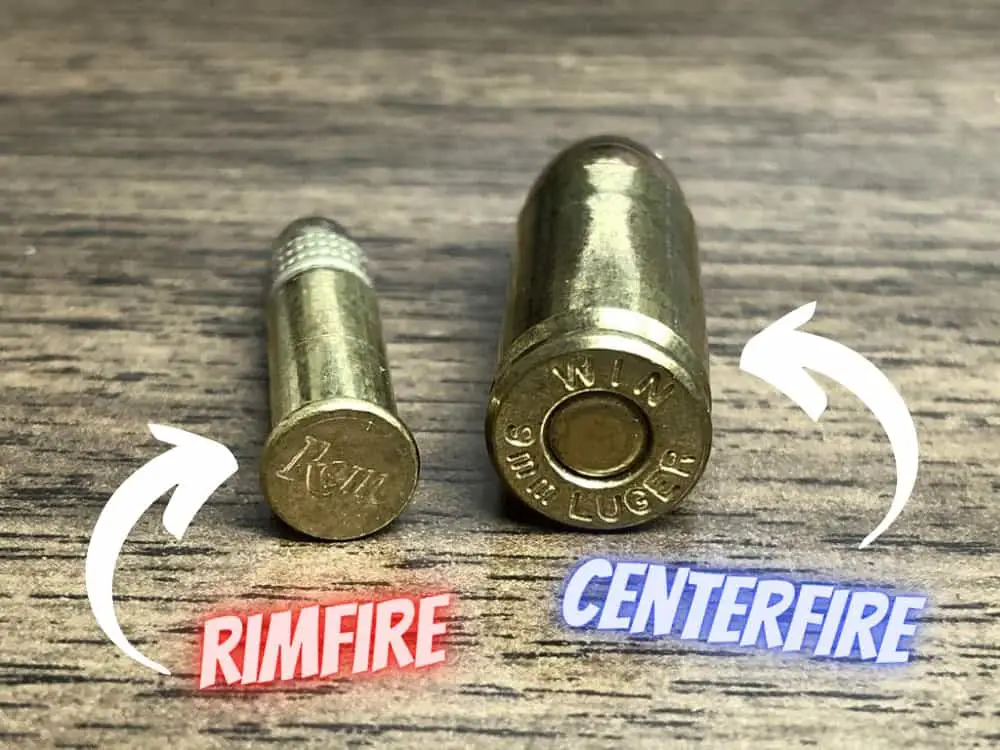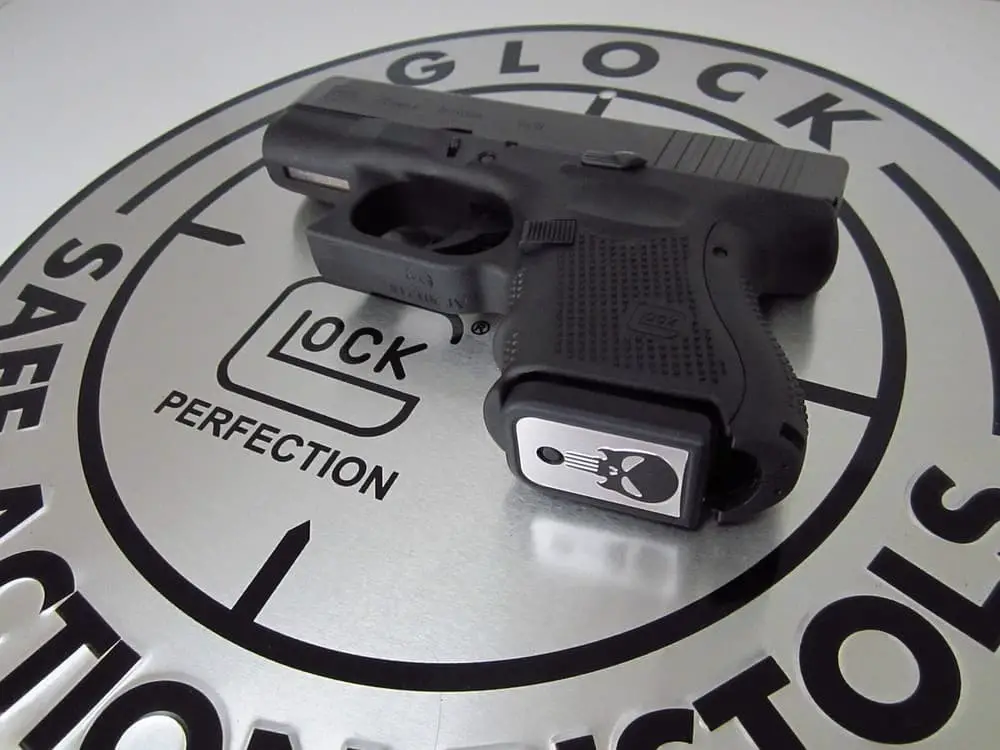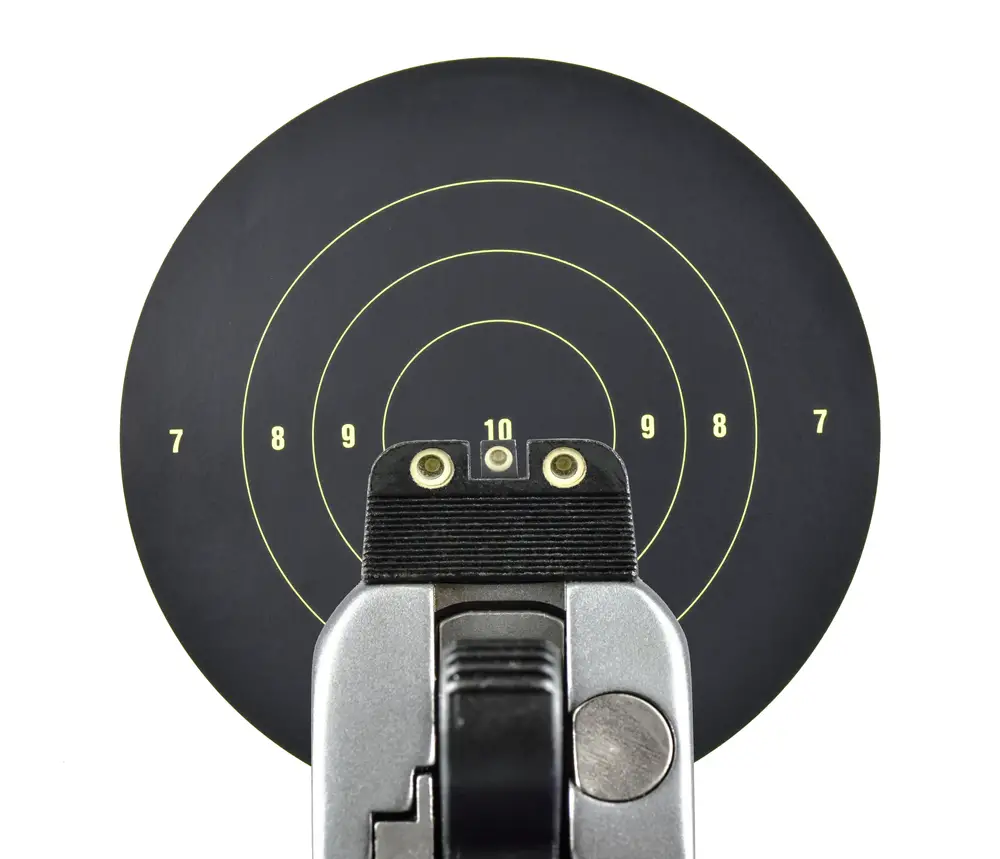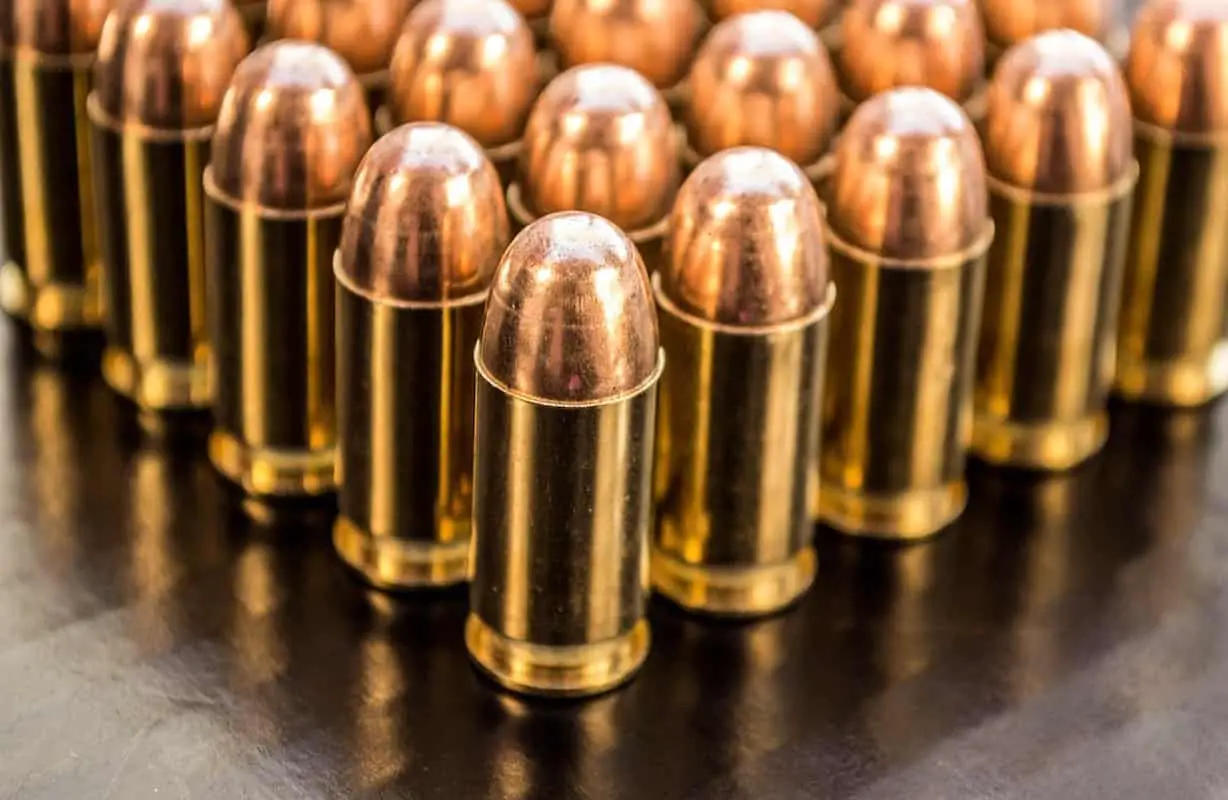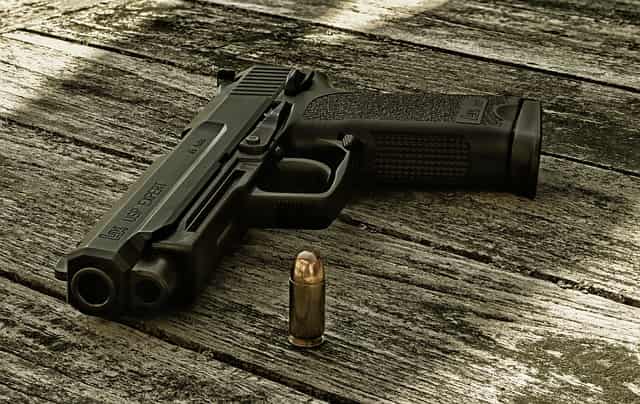
Louisiana Concealed Carry Certification Process
In pursuing a concealed carry permit in Louisiana, you must navigate through specific state requirements and complete a certified handgun training course. This process ensures you are knowledgeable in firearm laws and competent in handgun handling.
Permit Application Requirements
To apply for your concealed carry permit, you must meet several criteria set by the Louisiana State Police. Here’s a quick list to guide you:
- Proof of Residency: You must demonstrate that you are a legal resident of Louisiana.
- Training Certificate: Successful completion of a handgun education course is necessary. Once completed, submit your training certificate with your application.
- Fingerprinting: Submit fingerprinting via the Louisiana Applicant Processing Solution (LAPS) for a background check.
- Payment: A non-refundable fee is required at the time of application. This can be paid online or through other approved payment methods.
Training Course Outline
The state-endorsed handgun education courses cover vital topics for any concealed carry permit applicant. Expect to cover the following:
- Handgun Nomenclature: Gain an understanding of the different parts of a handgun and how they function.
- Safe Handling Procedures: Learn essential safety practices to prevent accidents.
- Ammunition Knowledge: Be informed about various types of ammunition and the fundamentals of how they work.
- Shooting Fundamentals: Develop skills in aiming, posture, grip, and shooting technique.
Upon completion, you will receive a certificate, which you’ll need to proceed with your concealed carry permit application. This certification is part of your proof of competency with a handgun, as required by state law.
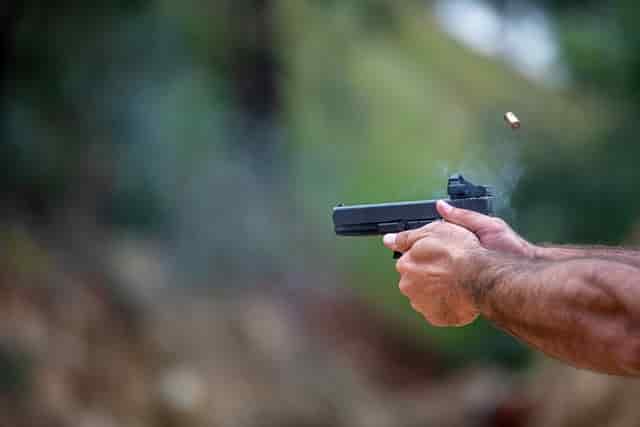
Concealed Carry Training Details
In Louisiana, concealed carry training classes provide a comprehensive education ranging from firearm basics to legal regulations. Receiving this training ensures that you’re equipped with both the practical skills and legal knowledge to carry a handgun responsibly.
Pistol Nomenclature and Handling
Understanding your handgun is paramount. Pistol nomenclature encompasses the various parts and functions of the handgun, ensuring you’re articulate in handgun terminology. Additionally, safe handling practices are a core focus, teaching you how to handle your weapon without endangering yourself or others.
- Key Components: Barrel, trigger, magazine, sights
- Handling Rules: Always assume the handgun is loaded, keep your finger off the trigger until ready to shoot, never point the handgun at anything you don’t intend to destroy
Range Qualification and Shooting Skills
Training involves hands-on range qualification to test your shooting abilities with the handgun. You’re expected to demonstrate competence in a variety of handgun shooting positions, which is a testament to your readiness to carry a handgun.
- Shooting Drills: Accuracy, proper grip, shooting stance
- Range Safety: Proper ear and eye protection, following the range commander’s instructions
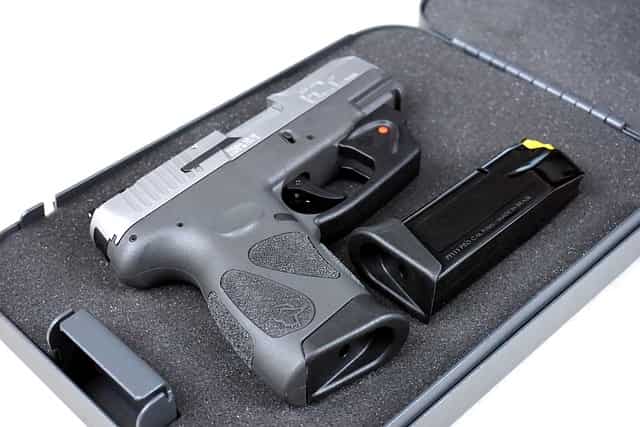
Legal Aspects and Use of Deadly Force
You will navigate through the legal aspects of carrying a concealed weapon, including when and where you can legally carry and how to interact with law enforcement. An awareness of conflict resolution and the judicious use of deadly force is essential to avoid unnecessary escalation and understanding the gravitas of drawing your handgun.
- Laws: Concealed carry statutes, prohibited areas, interaction with law enforcement
- Deadly Force: Understanding the legal and moral implications, scenarios for lawful usage
Each training course aims to provide quality education from certified instructors with deep expertise in both firearm mechanics and legal guidelines. The goal is to ensure you understand your handgun and can use it safely and legally.
Choosing a Concealed Carry Class
When you’re looking to acquire a concealed carry permit in Louisiana, the training class you choose is crucial. It’s important to understand whether online or in-person options are suitable for you and to select a certified instructor who can provide comprehensive and legitimate training.
Online vs. In-person Options
Online courses offer flexibility, allowing you to complete training at your own pace and convenience. The Louisiana State Police provide an online handgun education course at no cost to residents. It educates on firearm safety and use and is not required for obtaining a concealed handgun permit, but it is a valuable resource.
In-person classes, on the other hand, provide hands-on experience, which can be invaluable. For example, the Louisiana Concealed Handgun Permit Class includes shooting positions, conflict resolution, and proper care for firearms, enhancing your practical skills.
Selecting Certified Instructors
Finding certified instructors is essential for ensuring that the education you receive meets state standards and thoroughly prepares you. Check for positive reviews and credentials to confirm that the instruction is reliable and recognized. Services like Concealed Coalition are dedicated to responsible firearm ownership and provide certified educational training.
Remember to verify the instructors’ certifications and their adherence to Louisiana state law requirements for a concealed carry permit. You’re investing in your own safety, so choosing an instructor with a proven track record and positive reviews will ensure that your learning experience is both beneficial and compliant with legal statutes.
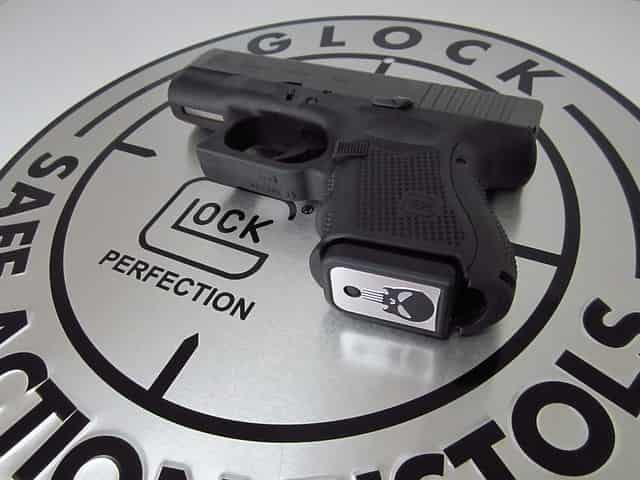
Essential Concealed Carry Equipment
When preparing for concealed carry classes in Louisiana, it’s vital to equip yourself properly to ensure safety and compliance with the training requirements. Proper gear and selecting the right ammunition are both crucial to your learning experience.
Required Protective Gear
To participate in a concealed carry class, you must have the appropriate protective gear. This is non-negotiable for the safety of both you and others. Eye protection is indispensable as it shields your eyes from potential debris or discharged shell casings. Along with protecting your eyes, ear protection is also mandatory, as gunfire can cause immediate and long-term hearing damage. Here’s a list of the protective gear you should have:
- Eye Protection: Glasses should be ballistic-rated for maximum safety.
- Ear Protection: Use either over-the-ear muffs or in-ear plugs, with a preference for noise-canceling features.
Remember, no matter how skilled you might be, never compromise on safety gear.
Selecting the Right Ammunition for Training
The ammunition, or ammo, you select for training is also critical. Use the same caliber of ammo as your pistol to avoid malfunctions or damage to the weapon. For training purposes, it’s sensible to use full metal jacket (FMJ) rounds due to their reliability and cost-effectiveness. Here’s what to consider when choosing your ammunition:
- Correct Caliber: Match the ammo to your pistol’s caliber precisely; use the gun manufacturer’s recommendation if unsure.
- Quality Over Quantity: While bulk purchases can save money, ensure you’re buying from reputable brands to avoid misfires and jams.
Ensure you bring sufficient quantities to the range, as most classes, like the one detailed by Louisiana State Police, require a certain amount of live-fire exercises. Remember, the right ammunition can make a significant difference in your shooting experience and skill development.
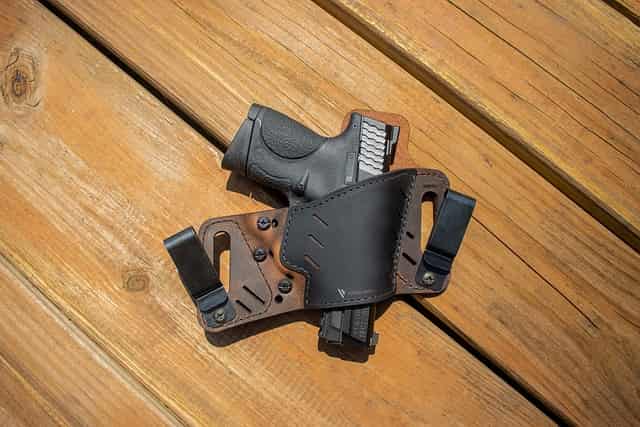
Advanced Concealed Carry Topics
When you pursue advanced concealed carry topics, you aim to refine your ability to protect yourself and prevent accidents. These topics go beyond basic handling and legal considerations, delving into strategic use and secure storage of your handgun.
Defensive Handgun Strategies
Your defensive handgun tactics are crucial for personal and home defense scenarios. Within this course, you’ll learn how to handle high-stress situations effectively, with an emphasis on gaining proficiency in Defensive Handgun 100 drills. These drills focus on:
- Quick and accurate target engagement
- Decision-making under pressure
- Effective use of cover and concealment
Preventing Unauthorized Access
A core aspect of responsible gun ownership is child access prevention. Advanced courses provide in-depth knowledge on:
- The latest security technologies for firearms storage
- Legal responsibilities and best practices for keeping handguns away from unauthorized users, particularly children
- Training techniques to ensure everyone in your home understands the importance of gun safety
Maintaining Your Louisiana Concealed Handgun Permit
To legally carry a concealed weapon in Louisiana, maintaining the validity of your Louisiana Concealed Handgun Permit (LACHP) is crucial. This involves staying informed on renewal processes and meeting continuing education requirements.
Renewal Process and Continuing Education
Renewal Process:
Your Louisiana concealed carry permit will require periodic renewal. The standard LACHP is valid for five years, after which you must renew to maintain your concealed carry privileges. Initiating the renewal process before your permit expires ensures continuous coverage and legal compliance.
- Application: Visit the Concealed Handgun Permit online application portal to submit your renewal application.
- Fees: Pay the necessary renewal fees as specified by the Louisiana State Police (costs may vary based on the length of the permit).
- Documentation: Provide a copy of your driver’s license or state-issued ID card, and documentation of your completed continuing education or firearms training.
Continuing Education:
As part of the renewal criteria, Louisiana law requires permit holders to demonstrate continued competence with a handgun.
- Attend a firearms safety or training course approved by the Louisiana State Police.
- Recertification: If you hold a lifetime permit, Louisiana law dictates that you must attend recertification training every five years and submit proof with your renewal application.
- Training Proof: Evidence of recertification must accompany your renewal application to the Louisiana State Police Concealed Handgun Unit.
Renewing your Louisiana CCW permit on time and keeping up with your continuing education are the backbone of responsible carry in the state, ensuring that your rights and duties as a permit holder are up to date.
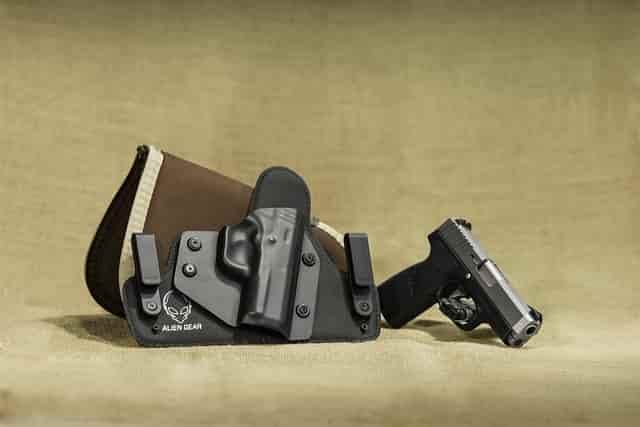
Legislative Updates and Reciprocity
Your understanding of concealed carry laws in Louisiana should include recognizing how recent legislative changes impact your rights and knowing which states honor your Louisiana concealed carry permit.
Interstate Conceal Carry Recognition
Louisiana has reciprocity agreements with several states. This means that your Louisiana concealed carry permit is recognized and honored in those states, allowing you to travel across state lines while still abiding by the firearm laws of each individual state. It’s important for you to confirm that your destination state has a reciprocity agreement with Louisiana to ensure lawful carry.
- Effective Date: Since August 15, 2004
- Age Requirement: Must be 21 years or older
- Permit Recognition: Other states’ concealed handgun permits are recognized in Louisiana if the holder is 21 and above.
For a detailed list of states where your Louisiana permit is accepted, visit the Reciprocity – Louisiana State Police page.
Latest Louisiana Firearms Laws
Stay informed about the most current firearms laws, as Louisiana continuously evolves its legislation regarding firearms. As a resident, you should be aware that Louisiana recently provided an online handgun education course at no cost. This course focuses on firearm safety and use. Keep in mind:
- Course Availability: Offered online by Louisiana State Police
- Course Requirement: Optional and not needed for a concealed handgun permit
To access the state-provided education course, you can view it on the Handgun Education Courses – Louisiana State Police website. Remember, the legal landscape for concealed carry and firearms laws can change, so make sure to stay updated with the latest information and comply with all state and federal laws.
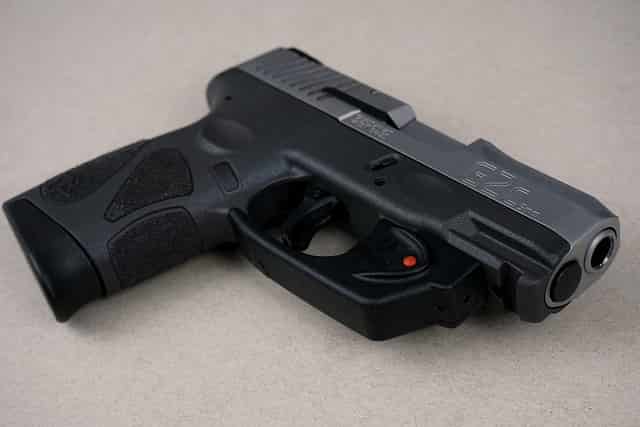
Frequently Asked Questions
When considering concealed carry classes in Louisiana, you have specific legal requirements and course details to understand. This section addresses the most common inquiries to help you navigate the process.
What are the legal requirements for enrolling in a concealed carry class in Louisiana?
You must be a resident of Louisiana and meet all state requirements to possess a firearm. These requirements include being at least 21 years of age and not prohibited by law due to a criminal background or certain mental health issues.
How long is the Louisiana concealed carry course and what topics are covered?
The concealed carry course in Louisiana typically lasts nine hours. It includes topics such as handgun nomenclature, safe handling, shooting fundamentals, and the legal aspects of carrying a concealed handgun.
Can non-residents take concealed carry classes in Louisiana?
Non-residents cannot apply for a Louisiana Concealed Handgun Permit, hence they are not eligible to take the concealed carry classes designed for permit applicants in Louisiana.
What documentation is needed to apply for a Louisiana Concealed Handgun Permit after completing the class?
After completing your class, you’ll need to provide a completed application form, evidence of residency, a copy of your training certificate, and a set of fingerprints to the Louisiana State Police.
Is there a qualifying shooting test as part of the concealed carry class in Louisiana?
Yes, a shooting proficiency test is part of the concealed carry class in Louisiana. You must demonstrate safety and accuracy with a firearm to pass this component of the course.
Are there any online options for completing the required education for a Louisiana concealed carry permit?
The Louisiana State Police offers an online handgun education course that covers firearm safety and use. It is an optional resource for residents and is not a requirement for obtaining a concealed handgun permit.

Jason Huskey
Owner of CCWClasses.net
Jason Huskey is a family man with three kids and a wonderful wife. He’s always starting new hobbies, but his true passion lies in shooting sports. Jason has been a CCW license holder for over 10 years and carries every day. In addition to firearms, he also enjoys playing guitar and writing songs. He tries to live by the Christian values he believes in.
More things you might enjoy…
Can a 38 Special Shoot 357 Rounds?
Image by MikeGunner from Pixabay I’ve long since discovered that very few activities give me the same thrill and sense of security as firing a gun. As a gun owner and enthusiast, I’ve always been curious about which guns can shoot which kinds of ammunition. I have a Derringer five-shot revolver that uses .22 rounds.…
Who Makes the Most Popular Brands of Ammo
If you are here to figure out who makes Herter’s ammo just look below the following table for a more thorough answer. If you are looking for a specific type of ammo, then you need to start by figuring out who makes it. There are lots of options for ammunition and each type of bullet…
What Does Full Metal Jacket Mean?
If you have heard the term full metal jacket, then you might be wondering what this means. I know that growing up, I heard this term a lot. I dismissed it as some sort of saying or cliche. Eventually, I decided that I needed to figure out what people meant when they use this term.…
How Often Should You Clean Your Gun?
After purchasing a firearm, you might wonder how often you should clean your gun. The truth is that it largely depends on how often you use it and where you live. Keep reading to learn more. How Often Should You Clean Your Gun? The short answer: do a light cleaning after every shooting session and…
What Is The Main Difference Between Centerfire And Rimfire Ammunition?
Rimfire vs Centerfire Everyone has to start somewhere. If you’re new to guns, learning the difference between rimfire and centerfire ammunition is important. Let me backtrack a moment. The first time I went out on the gun range, I had zero idea that there were different types of ammo for different types of weapons. All I knew…
Continue Reading What Is The Main Difference Between Centerfire And Rimfire Ammunition?
How Should You Hold a Handgun for Maximum Accuracy?
Whether it’s for sport or you find yourself in a defensive situation where you need to use a handgun, how you hold it will significantly affect your accuracy. Developing your handgun techniques will help you become a better shot and keep you safe. Read on to learn the answer to the question: How should you…
Continue Reading How Should You Hold a Handgun for Maximum Accuracy?
What Is Stippling On A Gun?
Hey, would you like a more firm grip on your gun? Would that help you shoot better? Well that is what stippling is for. Stippling is a modification to the grip that makes it, well, more grippy. It is done by sanding off the original finish and then using a hot soldering iron to make…
What Is A Centerfire Pistol?
To answer the question: “What Is A Centerfire Pistol?”, you must first understand that there are two main types of ammunition: Centerfire Rimfire These ammo categorizations are based on where the firing pin hits the back of the bullet to make it fire. A centerfire pistol is one where the firing pin strikes the center…
Is It Bad To Dry Fire A Glock?
There are loads of myths and assumptions surrounding handguns. If you grew up around guns, you probably heard some of these myths. Today, we will answer the question: Is it bad to dry fire a Glock. The Quick Answer Dry firing modern centerfire guns is completely fine (this includes most Glocks). The firing pin does…
What Is The Sight Picture?
When you first became interested in shooting you probably heard the terms sight picture and sight alignment being thrown around. Most people tend to use the two terms interchangeably; however, they do not mean the same thing. In this guide, I will make a clear distinction between sight picture and sight alignment. To master any new trade, you must…
What is Ball Ammo
When you hear the term “ball ammo” you may be picturing an actual ball. While the term did originate from ball shaped ammo, that’s not what it means today. Most ball ammo today is cylindrical in shape. It will have a lead core coated with copper. Keep reading to learn all about the history and…
